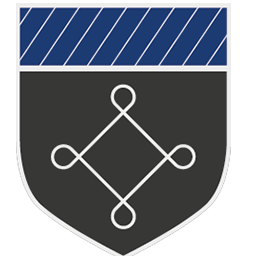Drama
“We all must do theatre, to find out who we are, and to discover who we could become.”
Augusto Boal
Curriculum Intent
We believe all students deserve a creative and exciting Drama curriculum that is ambitious and rich in knowledge. We are incredibly passionate about providing our students with a plethora of experiences in and outside of the classroom which will enable them in becoming confident and knowledgeable performers and spectators. In line with the Trusts vision, we want all young people to ‘make outstanding progress’ through a Drama curriculum that aims to generate and maintain students’ curiosity of the world of theatre and encourages inquisitive minds that develop into original creative ideas, questioning dramatic themes/ issues and explorational techniques so students develop confidence in their creating, performing, spectating and evaluations of the page to the stage.
Thoughtful consideration has been, and continues to be, put into developing the Drama curriculum; the curriculum spirals and is planned and sequenced so that new component knowledge and skills build on what has been previously taught; key techniques and skills are routinely being revisited throughout years 7 -11.
Students will be taught units of work that cover and go beyond the requirements of the national curriculum, and this should enable students to:
- Develop an understanding of the world of theatre through the specific disciplines of devising and scripted performances as well as understanding how Drama can influence and educate audiences.
- Developing the confidence, communication and team work skills of all students, which prepares young people to confidently live, communicate and work in the wider world.
- Explore real-life scenarios and develop how to collaboratively problem solve with maturity, empathy and listening skills
- Opportunities to focus on specific aspects of performance skills including acting, directing, lighting, sound, set, props, costume and backstage.
- Develop a repertoire of drama vocabulary which aids the students’ knowledge and understanding, not only of the performances they are exploring but of the live performances they are watching and evaluating in the wider world.
- Develop practical skills when experimenting with script interpretation and characterisation, devising original drama and exploring the different styles used by different theatre practitioners.
- Develop reading by discussing the characters, evaluate the vocal skills needed to interpret the character and experimenting with vocal reactions from student to student to be able to deliver the lines in a convincing way.
- Develop listening and vocal skills when discussing themes/issues and social and historical contexts, promote projection and clarity when students evaluate and perform.
Drama has an important role in developing students’ cultural capital. Studying Drama helps shape students’ appreciation of the disciplines of the theatre in its own right and the etiquette that come along side it. As well as it providing students with the knowledge, the skills and opportunities to discuss the social and historical contexts, the themes and issues after observing live theatre or exploring devised or scripted pieces.
Some examples of key issues that are discussed are peer pressure, pros and cons of social media, living with disabilities, forms of bullying, Black lives matter, gangs, different types of families, Socio-economic backgrounds, friendship and charity. Through consistent discussions and how drama is observed, experiences gained from co- curricular, trips, talks of understanding the application of drama qualifications, careers, the knowledge and skills practically used in drama, the department builds on students’ drama capital.
Curriculum Content
Each department has carefully developed curriculum plans in line with our curriculum intent. The curriculum overview for each year group in this subject can be found below.


